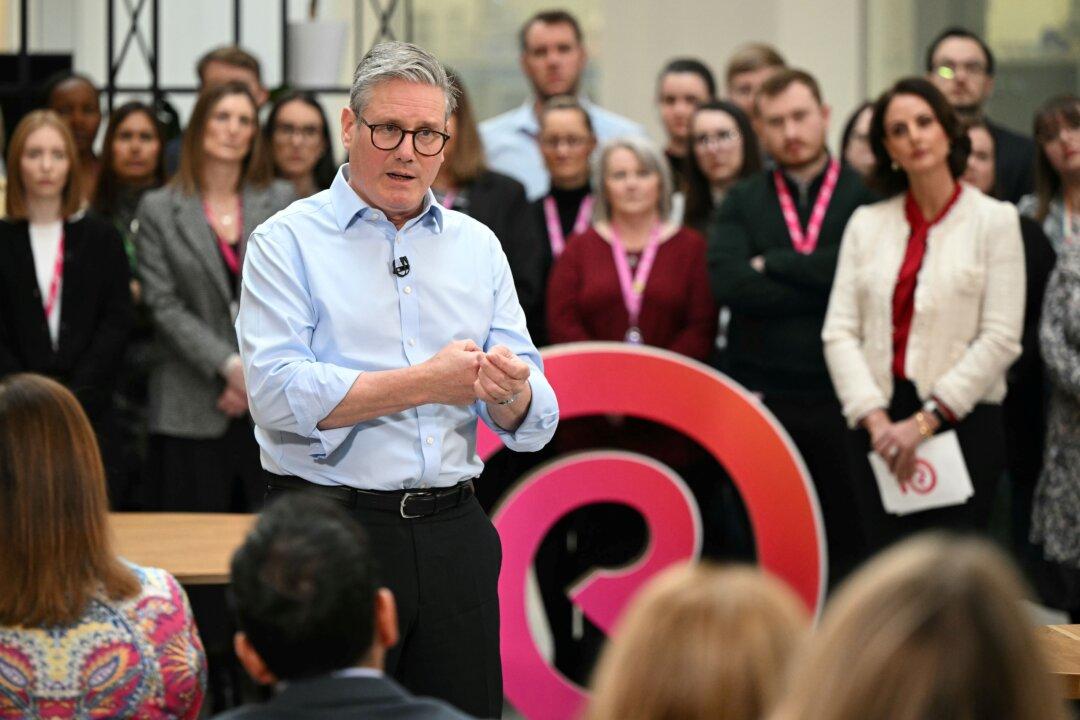The success of Britain’s new post-Brexit immigration plan could depend on whether the UK can transition to a higher-skilled, less migration-dependent model without triggering deeper labour shortages or stalling recovery.
In this context, cutting off large pools of migrant labour may ease political pressure but risks further constraining already sluggish growth.
Health and Care Sector in Crosshairs
Sectors like health and social care continue to depend heavily on overseas recruitment.The number of Health & Care visas issued for below degree-level jobs jumped from 37,000 in 2022 to 108,000 in 2023.
The white paper includes plans to end care worker visas for overseas recruitment, as well as bringing in stricter tests for colleges and universities offering places to foreign students, and a reduction in the amount of time graduates can spend in the UK after their studies.
This comes amid warnings from the Royal College of Nursing (RCN) that 42 percent of internationally educated nursing staff are planning to leave the UK.
Among those considering leaving, 70 percent cited better pay as a factor that could persuade them to stay, while 40 percent pointed to immigration policy as another key issue.
“They pay tax and work in our vital services, they deserve the same rights. Sadly, this government is intent on pushing people into poverty, away from the country, and with no credible plan to grow the domestic workforce in sight,” said Nicola Ranger, RCN general secretary and chief executive.

Jones sees this dependency as part of a deeper issue.
“Our immigration policy has become an industrial strategy, one of ‘human quantitative easing (HQE).’
“Migration has substituted for a more sustainable industrial strategy or more competitive economic decisions, allowing successive governments to avoid hard decisions on delivering growth.”
Hiring Costs and Reliance on Migrant Labour
Further complicating the picture are the increases in the national insurance contributions (NICs) and upcoming changes in employment law.At the same time, the UK is the only major economy where employment has fallen in the past five years, driven by factors like poor health, caring responsibilities, and a lack of access to skills or training.
The government plans to ask sectors that rely heavily on overseas workers to improve training and job standards, and bring more inactive UK workers back into employment.
Prime Minister Sir Keir Starmer said Britain needs to reduce overreliance on low-wage migrant labour, while staying open to global talent.
“You cannot simply pull up a drawbridge, let nobody in, and think that is an economy that would work. That would hurt the pay packets of working people—without question.
“But at the same time, we do have to ask why parts of our economy seem almost addicted to importing cheap labour rather than investing in the skills of people who are here and want a good job in their community,” he said at the launch of the white paper on Monday.
Competing Visions for the Future of Migration
The white paper drew strong reactions from across the policy spectrum.The Centre for Policy Studies (CPS) argued that migration is not an “unmitigated economic good.” CPS Research Director Karl Williams said some visa routes—like the social care visa and the graduate visa—are “too readily abused.”
He pointed out that there isn’t enough reliable data on migration’s impact and called for better evidence and annual caps on migration to be approved by Parliament.
Williams also doubted that shortening the graduate visa from 24 to 18 months would make much difference, saying many people use these visas mainly to work, not study.

Their proposals include scrapping the graduate visa and the Shortage Occupation List, capping skilled worker visas at 50,000–60,000 a year, phasing out the social care visa, and ending public subsidies for low-paid migrant workers.
They also suggested encouraging businesses to invest in automation with tax breaks and national insurance discounts.
“Weaning the economy off its addiction to HQE would require a far more ambitious and holistic approach,” said Jones.
The Institute for Public Policy Research took a more measured tone.
While praising reforms that link migration policy with domestic skills investment and measures to tackle exploitation, Associate Director Marley Morris warned that extending the path to settlement to 10 years may increase poverty and hinder integration.
He also noted that ending the care visa without improved conditions could deepen the staffing crisis.
Despite the rhetoric of “restoring control,” the government has not committed to a numerical net migration target.
Jones welcomed the government’s proposals but stressed the white paper still doesn’t go far enough to “fix the structural addiction to immigration.”







